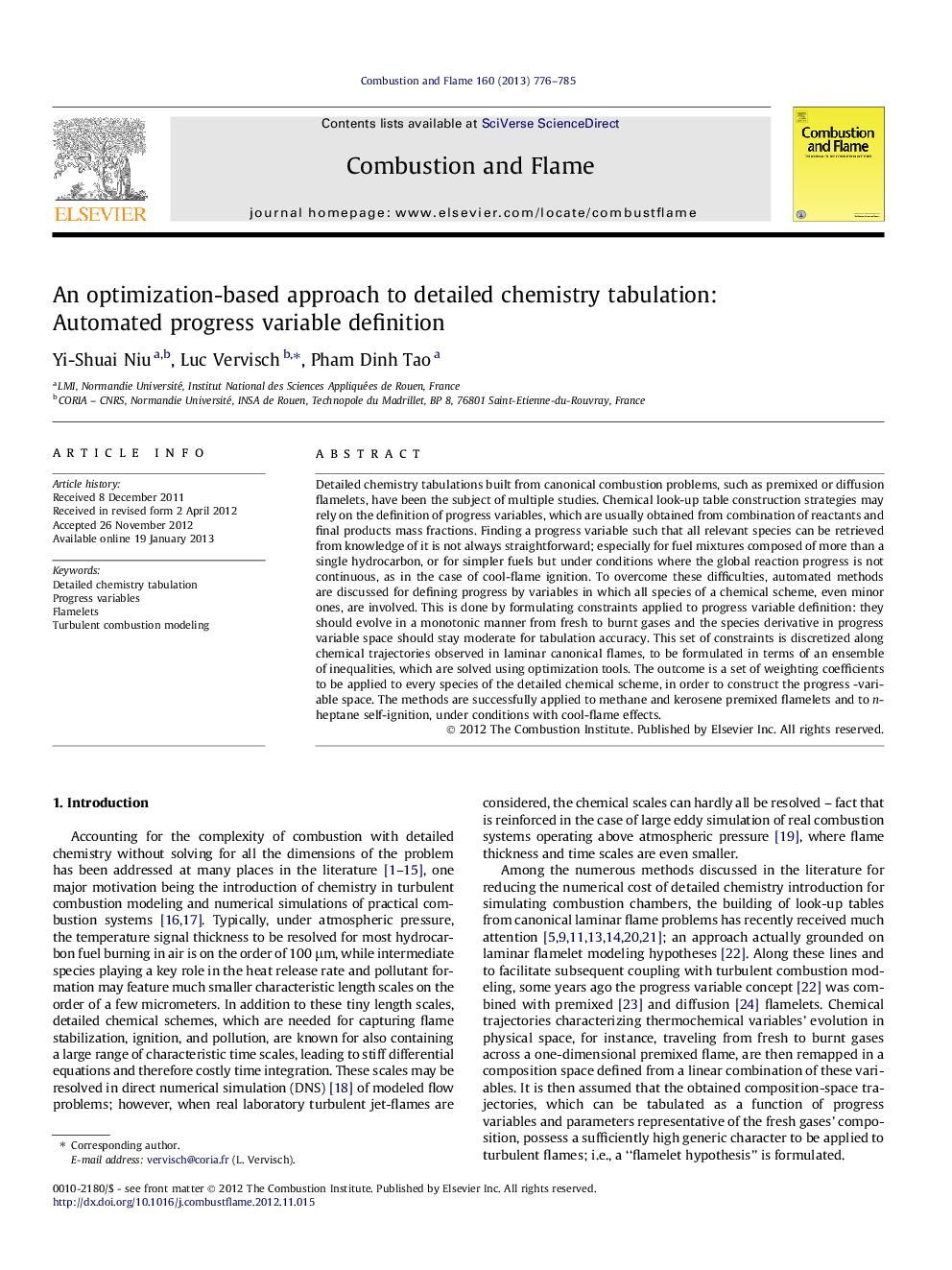| Article ID | Journal | Published Year | Pages | File Type |
|---|---|---|---|---|
| 168949 | Combustion and Flame | 2013 | 10 Pages |
Detailed chemistry tabulations built from canonical combustion problems, such as premixed or diffusion flamelets, have been the subject of multiple studies. Chemical look-up table construction strategies may rely on the definition of progress variables, which are usually obtained from combination of reactants and final products mass fractions. Finding a progress variable such that all relevant species can be retrieved from knowledge of it is not always straightforward; especially for fuel mixtures composed of more than a single hydrocarbon, or for simpler fuels but under conditions where the global reaction progress is not continuous, as in the case of cool-flame ignition. To overcome these difficulties, automated methods are discussed for defining progress by variables in which all species of a chemical scheme, even minor ones, are involved. This is done by formulating constraints applied to progress variable definition: they should evolve in a monotonic manner from fresh to burnt gases and the species derivative in progress variable space should stay moderate for tabulation accuracy. This set of constraints is discretized along chemical trajectories observed in laminar canonical flames, to be formulated in terms of an ensemble of inequalities, which are solved using optimization tools. The outcome is a set of weighting coefficients to be applied to every species of the detailed chemical scheme, in order to construct the progress -variable space. The methods are successfully applied to methane and kerosene premixed flamelets and to n-heptane self-ignition, under conditions with cool-flame effects.
